Copyright © 2024 Peking University School of Transnational Law.

The LLM program structure at Peking University School of Transnational Law (STL) is characterized by diversity and flexibility. Students can pick the courses, timeline and extra-curricular activities that best foster their academic interests and career goals.
The curriculum is designed to train lawyers who are comfortable working between multiple jurisdictions and different types of law and able to tackle complex and contemporary issues. STL offers the most extensive selection of English-language coursework of any law school in China, with more than 70 English-language courses covering subjects from international and comparative law to Chinese law to American common law. The curriculum includes a wide selection of specialty topics and electives ranging from Traditional Chinese Legal Thought to International Fintech Regulation.
STL is also one of the only law schools in the world where international students can take law courses in both English and Chinese. Additionally, STL offers one of the only LLM programs in China where international students study alongside their Chinese colleagues in nearly all their courses.
Whether you are a fresh graduate seeking specialized legal training, international experience and adventure, a mid-career professional ready to earn the credentials to promote your position or transition your field, an ambitious scholar excited to research in new fields, or even a partner at a law firm looking for opportunities to expand your network in China, STL’s LLM program can fit your goals.

This two-quarter course examines the formation and interpretation of contractual agreements under U.S. law (common law and Uniform Commercial Code (UCC)) and international law (United Nations Convention on Contracts for the International Sale of Goods (CISG)). The course also explores issues concerning the avoidance of contractual obligations and remedies for the breach of contractual obligations.
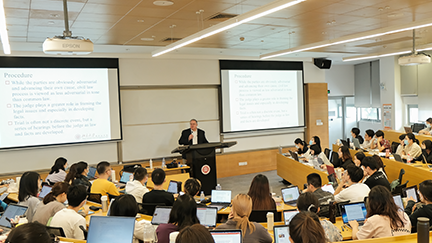
This two-quarter course covers the law of civil injuries and liabilities, including intentional torts, negligence, product liability, damages, and remedies.
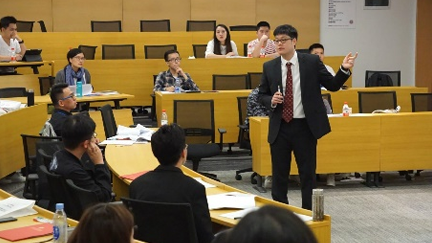
This course covers the major concepts and issues of Anglo-American property law. Topics to be covered in the first quarter include the concept of property in Anglo-American property law, property theory, the ownership of real property, adverse possession, the ownership of personal property, estates and future interests in land, concurrent ownership, and marital property. Topics to be covered in the second quarter include the leasing of real property (e.g., nonfreehold estates, assignments, subleases), private land use planning (e.g., easements, real covenants, equitable servitudes), land use regulation, eminent domain, and takings.
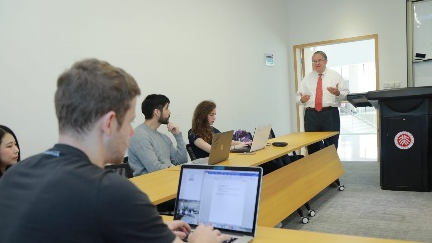
This course looks at civil legal procedure – the process through which private legal rights are enforced – with a particular focus on the U.S. Federal Rules of Civil Procedure. While the course covers the same subject matter as would be covered in a typical US law school civil procedure course, it gives additional, particular emphasis to those aspects of the US civil justice system that are most relevant to non-US lawyers.
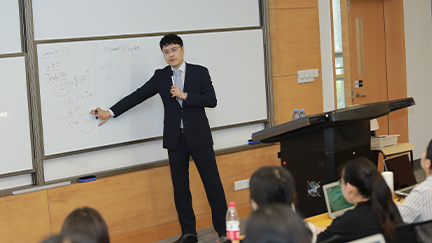
This two-quarter course examines the formation and interpretation of contractual agreements under U.S. law (common law and Uniform Commercial Code (UCC)) and international law (United Nations Convention on Contracts for the International Sale of Goods (CISG)). The course also explores issues concerning the avoidance of contractual obligations and remedies for the breach of contractual obligations.
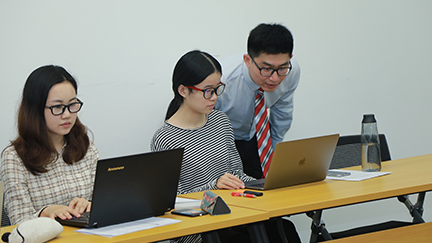
This course surveys the role of legal controls on business organizations, with an emphasis on executives, directors and controlling shareholders of public corporations. Aspects of the law of agency, partnership, and closely held corporations are reviewed to highlight continuities and discontinuities with the publicly held corporation. Topics include basic accounting and basic corporate finance, limited liability, creditor protection, shareholder voting, executive compensation, fiduciary duties, shareholder lawsuits, and control transactions. The emphasis throughout is on the economic analysis of legal rules as a set of constraints on corporate actors.
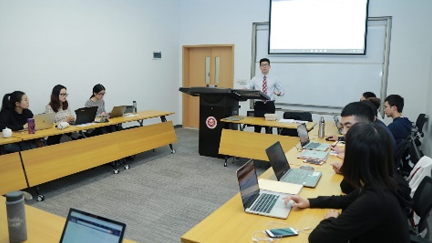
Transnational Legal Practice is a three-quarter course that begins with an introduction to the U.S. legal system and to working with common law to produce legal analyses before proceeding to legal research and, finally, to written and oral advocacy on behalf of a client. Students in Transnational Legal Practice work closely in
STL’s dual degree J.D./J.M. curriculum offers unmatched depth in complex corporate and regulatory topics, commercial and international dispute resolution, and comparative legal traditions taught by an exceptionally distinguished multinational faculty. Students are encouraged to pursue their individual interests from the wide variety of courses in STL’s curriculum.
The following are concentrations by subject matter. Clicking on each reveals courses within the concentration.